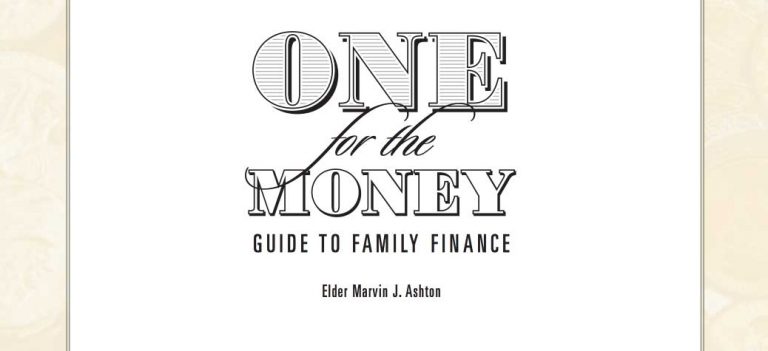Are You a Taker or a Giver?
Several years ago, I had a conversation with a friend of mine who was struggling with his career, his finances, and other elements of his life. As we drove home from a meeting we had attended together with a non-profit organization, he vented about all of the issues he had been having.
He told almost the same story about three different client relationships that had crashed a burned. For each story, he had more than sufficient evidence that he was in the right, that he had lived up to his part of the bargin, and that his clients should have been nothing less than happy with his work and with the relationship. The subplot to each story was consistent. For some reason, these client were unhappy with his work, and for some reason felt like they had been charged too much for what they considered to be lack of performance, lack of results.
As I listened to these several stories, I couldn’t help but wonder to myself, “Despite all the excuses you have, and all the evidence you’ve given about why you cannot be held to blame: being fired not once, not twice, but three times, do you not see a very distinguishable trend?”
From everything he told me, it was clear that he was not giving nearly as much as he was taking in payment from each of these clients. I had recognized that same behavior with him as a neighbor, constantly asking for and even demanding favors, but rarely reciprocating.
In my attempt to give subtle advice and slightly critical feedback to this friend of mine, I simply suggested that I’ve made it a personal goal to give much more than would be expected whenever I’m hire to do work for people so that there is no question about whether I’ve at least fulfilled their requirements or expectations. I mentioned that having that particular approach had worked really well for me throughout my career.
When it became apparent that he had no intention of internalization or applying to himself and his situation, I chose to just drive and listen.
Many people I’ve seen struggle with finances, relationships, and general happiness, often exhibit this same persona as what I just described. They seem to feel like they can get ahead by constantly scraping to make sure that they get everything that is what they consider to be their due and fail to pay attention to a universal law that is followed by those who are typically more prosperous, have better relationships, and are ultimately happier. The essence of the law boils down to this: if you have configured yourself or developed a habit to consistently take more than you give, ironically you will end up with less than if you took the opposite approach.
There’s a spiritual foundation behind this principle. Jesus, the ultimate giver, described the principle in many different ways including this one in Matthew 23: 11, “ But he that is greatest among you shall be your servant.” The only man who was ever considered to be perfect advised on many occasions that the accumulation of power, strength, and bounty are ultimately obtained not through a selfish demeanor that is associated with pillaging and looting, or even taking material things at other’s expense. The Golden Rule taught in the Bible, which forms the social foundation for prosperous societies, is another interpretation of the principle that it is best to priorities giving over receiving.
Giving and Taking in Marriage
Probably the most appropriate application of giving more than taking is a marriage relationship.
In a speech that I attended at church several years ago, Lynn Robbins, a highly successful business man and co-founder of Franklin Covey, pointed out that people make the mistake of thinking that a marriage relationship is supposed to be 50/50.
Instead, he pointed out, for a marriage to be truly successful, the husband and wife must expect to give 100% each. In a situation where a couple attempts to give only half of their effort to keeping the relationship healthy, the very nature of trying to balance the needle in the middle creates destructive outcomes, more often than not ultimately leading to divorce. On the other hand, in marriage relationships where both spouses are 100% committed to serving the needs of the other, the marriage thrives.
The increasingly hedonistic modern society being experienced by most people in the United States and throughout the world, whether on purpose or incidentally, strongly influences a collective mentality based on selfishness and the pursuit of pleasure at the expense of things that have much more lasting value.
Everything She Wants – Wham
The 1984 popular song from Wham,”Everything She Wants”, provides a perfect illustration of the failing of this negotiated 50/50 approach to a marriage relationship. The song accuses a spouse of demanding too much and giving more than she takes. The perspective demonstrated in the lyrics make it obvious that the author of the song himself also has a lot of improvement to do. One section of the song in particular stands out:
They told me marriage was a give and take.
Well, you’ve shown me you can take. You’ve got some giving to do.
These lines are becoming a representative of too many of the marriage relationships that exist in contemporary society as social media and other influences constantly remind us that selfishness is more desirable than sacrifice. The impact this is having on marriages and family relationships is highly detrimental.
The idea of giving 100% to someone else in a marriage without being so concerned about what that person is giving in return isn’t to say that a person in a marriage relationship that’s abusive should continue to indulge the insatiable selfishness of a marriage partner who has proven incapable of doing anything besides taking. Situations like that should certainly be corrected through divorce if counseling and other attempts to make the relationship healthy are not viable. In the majority of these marriages that are ending in divorce, that problem could be solved if each spouse (in their commitment to make the relationship work as it was originally intended) was willing to continuously make at least marginal gains towards giving 100% to their companion.
Being a Giver In Your Career Will Take You Places
During the years I’ve spent in the workplace, which includes experiences ranging from owning and operating my own small businesses to being a member of teams in larger organizations, I’ve seen the advantages of being a giver.
Consider the interaction between a prospective employee and someone doing a job interview. It’s natural for people, men especially, to overstate their abilities and demand so much from employers in terms of compensation, benefits, and other components of a job that it becomes a turn off. Whenever I’ve interviewed someone who has this mentality, regardless of how impressive their skill set and experience, it’s an automatic veto.
When interviewing for a job I want, I’ve found it very helpful to present to a potential employer the authentic demeanor that says, “How can I use my skills and motivation help this company accomplish its objectives.” While it’s important to make sure that you’re being compensated fairly for your contribution, it’s just as important (even for your own sense of contribution) for someone to feel like his work has been a net positive to a company, and that his compensation is not a subsidy or a sort of hand-out.
When employers decide trim down their payrolls, whether it be to make the company more efficient or out of economic need (such as a recession or company downturn), it’s almost always those who have proven to be takers who are on the chopping block first rather than those who have demonstrated a spirit of giving, contributing at least enough value to the company to cover the costs of employing them.
If you make a habit of being a giver with those you work for, it’s much less likely that you will lose your job, and it’s much more likely that you’ll be promoted, and that you’ll generally find prosperity in your work.
There are certainly exceptions to this standard, especially in those environments where climbing the corporate ladder involves falsely claiming credit for things you haven’t done, being a sycophant, and pursuing other false methods of leadership. However, even in those situations, success is usually short-lived and comes with the stress associated with achievement that goes against the “law of the harvest”, which says that each person ultimately reaps what he sows. It is better to find career success as a giver, a bonafide leader, than through the other alternatives.
Choosing Business Partners From the Ranks of Givers
As I’ve graduated in my career from being an employee to being a successful business owner, I’ve had many “opportunities” to partner with people. Some of these are people who I’ve met through teaching courses about starting online businesses. Often, people will opt for asking to partner with me on a business instead of starting from scratch on their own. That logic seems reasonable. However, there is more often than not a flaw in the approach I’ve seen. In most cases, there is an attitude manifest that says, “What can you do for me?” In fact, it’s been apparent in almost all of the offers I’ve had that the person simply wants me to build the business for them to benefit from, and that there is little or no interest on their part to contribute significantly to the business’ establishment and the difficult work required to get the business off the ground and making money.
In fact, several years ago I had a relative, who’d seen the success of the online businesses my wife and I built, tell me this: If you’ll get the business going to the point where we can both be paid well, I’ll jump in and be a partner. His expectation was that he’d be a 50/50 partner in a business that he made almost no sacrifice to launch.
No, thanks.
Another such person I met at church asked me several times over the course of a couple years I I would consider being partners and building a business with him. Each time he asked, I gave him some homework he could do to demonstrate his work ethic and to show that he had the propensity to build an internet business. Each time we had the conversation, he didn’t follow through. I also observed that his wife, a mother of several young kids, was required to work as much or more than he did to provide financially for the family. Those things were clear evidence that he was not interested in giving, but only taking. Naturally I declined each of his offers to partner.
Benefits of Being a Giver In Other Relationships
Although we may not be aware of this unless we’re paying close attention, in all of our most meaningful relationships (more than just acquaintances, although much of this applies on a smaller scale even with the people we don’t interact with as much), a culture of giving and taking is established. Relationships with friends, family, neighbors, and others involve a flow of giving and taking attitudes and behaviors that can either help relationships or damage them. People want to be around people who give more than they take. People tend to not want so much to be associated with people who take more than they give.
Here’s an example. My daughter took violin lessons from the same teacher, an excellent teacher who was highly trained and certainly qualified in many ways, for almost 8 years. My daughter learned a lot from this teacher, who helped her work her way through the process of becoming an excellent musician.
However, after years of having our daughter learning from this teacher, it became increasingly obvious that there was a damaging relationship that had formed, not just between my daughter and her teacher, but between my wife (who attended each lesson and who oversees our daughter’s music development) and the teacher. There was so much manipulation for my wife and daughter to do things, to pay for things, to attend things that were only beneficial to the teacher that it became obvious that the relationship was almost entirely one-sided. Even the successes my daughter achieved in developing her violin expertise seemed to be regarded as the teacher’s own tribute to herself. Requests were made by this teacher in the form of demands for things that placed an unnecessary amount of inconvenience and stress on my wife and our entire family.
Ultimately, it became time for us to separate our daughter from this woman’s studio entirely. In addition to teaching our children to be givers, we also want to make sure they understand and recognize when abuse is happening so they can intentionally separate themselves from harmful situations.
For this teacher, the addiction to taking more than giving has had a toll. A divorce from a husband who seemed to me like a very patient man, but who’d finally had enough preceded our departure was followed by being fired from an orchestra program that she founded years ago. As sad as this woman’s situation is, it could easily have been remedied by developing habits related to being a giver instead of a taker.
In millions of relationships that follow a similar path to the one I just described, those who give in to the natural tendency to consistently look after #1 instead of being considerate of the needs and expectations of others end up doing almost the exact opposite of what they intend to do. In their quest to secure things, including money, power, and recognition, those who are takers generally lose out on real prosperity.
Which Carpet to Put in a Home for Sale
During the time I’ve been writing this article, my wife and I were faced with an interesting and ironic decision to make. We are selling our home to move back to the South. In our preparations to sell the home, we’ve determined that it’s in dire need of new carpet even to make it presentable to potential buyers.
My wife requested and received quotes from several different carpet companies, including a contractor that works for Costco. The carpet from the Costco contractor ended up being a great deal on premium carpet that has a 30-year warranty, but it’s about $5,000 more expensive than the other bids we received for carpet that, although it’s also very good quality, is simply not close to the quality of the more expensive carpet.
Our thought process went like this…
We will likely be able to get the same price for our home, no matter what kind of carpet we purchase. Purchasing carpet that costs $5,000 more will most likely not contribute directly to being able to get a higher price for our home. However, if we were in that situation, purchasing a somewhat expensive home (in the $700,000 range), we would appreciate it if someone had installed carpet that was at a quality level that matched the rest of the home.
Understanding that it’s best, when possible, to consider what someone else might want (someone who, in this case, we have likely never even met before) and to be generous in making a financial decision, we decided to install the higher priced, better quality carpet, a decision that comes with the satisfaction of knowing we did our best to be generous and considerate of total strangers. In making that decision, we are also confident that in one way or another, that generosity will somehow make its way back to us at some point, maybe a long time in the future, possibly even when this life is over.
The Value of Being Generous
Back when I was a starving college student, working at a $5/hour job for which I was highly under-qualified, and for which I was constantly afraid of being fired because of my lack of technical capability, I often though to myself how nice it would be to not have to scrape by and to be financially stable, even wealthy. I also remember thinking that if I ever became wealthy, how great it would be to share that wealth through being generous with my time and money.
Fast forward 20 years since that time. I’ve had a lot of success as a business owner. I also recognize that none of my businesses were built by my own work ethic (combined with my wife, who is my business partner) alone, or without an infinite amount of help from others, including people who contributed directly and going as far out of the influence circle as those who have made contributions to the development of modern day computers, the internet, Google, social media platforms, and other elements that comprise most of the structure of my online businesses.
Recognizing that I have many people to be thankful to for my own financial success, I often feel the need to be generous. I’ve found that instinct to be very rewarding. Over the years, as it became apparent that the models I’d discovered for building wealth were legitimate, and that they worked well, I’ve had the chance to mentor lots of people who have sought for the same income opportunities, along with the flexibility I’ve had to work from home, to travel with my family, and to ultimately create my own prosperous version of the American Dream.
Every time I am generous, even in situations where I know that the generosity won’t be appreciated or even recognized, I have seen blessings (financial and in other currencies) follow. I believe that the very act of generosity shows God that you’re grateful for and recognize His hand in your life, and that there are lots of intangibles for which it is difficult to measure cause/effect relationships, but that are certainly handed down as a bundle based upon one’s commitment to being generous.
The financial realization of one of these came to me just this past week. Several weeks ago, I received a notice from a former partner and fellow owner of a tech startup called Nanobox that the company was being sold to a larger company (Digital Ocean) that I needed to provide some information to him relative to the sale so that my ownership could be purchased as part of the transaction. I left working for Nanobox two years ago after spending nine months as their Chief Marketing Officer, essentially for free.
When I left the company, I essentially wrote off my ownership (about 1% of the shares of the company) as being worthless, and I never expected to see anything come of it. In fact, in the back and forth exchanging data as I responded to his requests, I asked if he could tell me how much my percentage of the deal would be so that I could determine whether it was worth my time and effort to gather what was needed. [I happened to be on a vacation with my wife at the time the information was being requested.] I was surprised to find out that I’d be receiving $35,000 to $40,000 out of the sale. What a surprise!
I told my wife that things like that experience tend to happen to us undoubtedly in part because of the commitment we’ve made in our family to always give back, to be generous with our time, our talents, and our wealth.
Can a Person Change from Being a Taker to a Giver?
All of this talk about the benefits of being a giver and the hazards of being a taker would lead one to ask the question, “Is it possible to change from one to the other?”
I believe the answer to that question is undoubtedly, “Yes!” Just as anyone can use their free will and the gift of choice to change from poor habits, bad behavior, and a negative countenance into a better person, changing your nature from being a taker to a giver is possible.
I’m the first to admit (my kids and wife would be the second through eighth) that there are too many times when I take more than I give in various situations. Becoming a giver is a continuous process, but it requires a person to first of all recognize poor habits of taking and consciously determine to change from those habits. In religious terms, we call this repentance. It starts with feeling godly sorrow for consequences of the bad we do, in this case specifically taking instead of giving, and determining to make a change.
Finding a mentor who can help you change your behaviors and modeling the example of one who is a giver are ways of making that change.
I have found that assertively becoming more religious, more prayerful, more thoughtful will also help make the change.
This quote, written by James Talmage in a book called Jesus the Christ, describes the observant behavior of the one Giver who we could all stand to emulate:
He lived the simple life, at peace with His fellows, in communion with His Father, thus increasing in favor with God and men. As shown by His public utterances after He had become a man, these years of seclusion were spent in active effort, both physical and mental. Jesus was a close observer of nature and men. He was able to draw illustrations with which to point His teachings from the varied occupations, trades and professions; the ways of the lawyer and the physician, the manners of the scribe, the Pharisee and the rabbi, the habits of the poor, the customs of the rich, the life of the shepherd, the farmer, the vinedresser and the fisherman—were all known to Him. He considered the lilies of the field, and the grass in meadow and upland, the birds which sowed not nor gathered into barns but lived on the bounty of their Maker, the foxes in their holes, the petted house dog and the vagrant cur, the hen sheltering her brood beneath protecting wings—all these had contributed to the wisdom in which He grew, as had also the moods of the weather, the recurrence of the seasons, and all the phenomena of natural change and order.
This quote is one that I’ve referred to many times as I check myself and take personal assessments in regards to my progress at becoming more of a giver and less of a taker.
I hope my experience and advice here help you in your journey as well.








